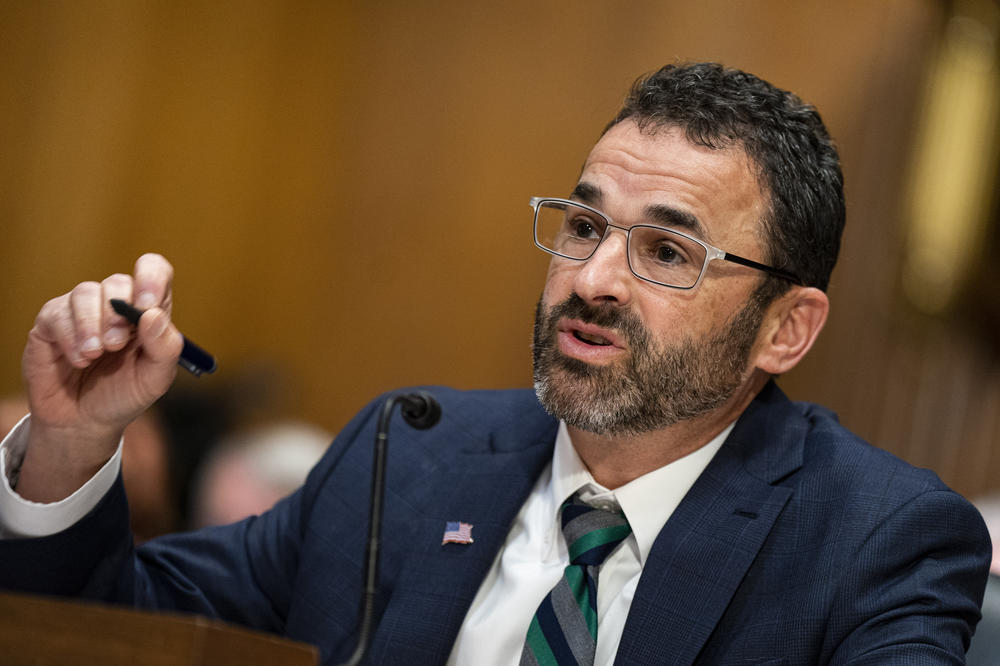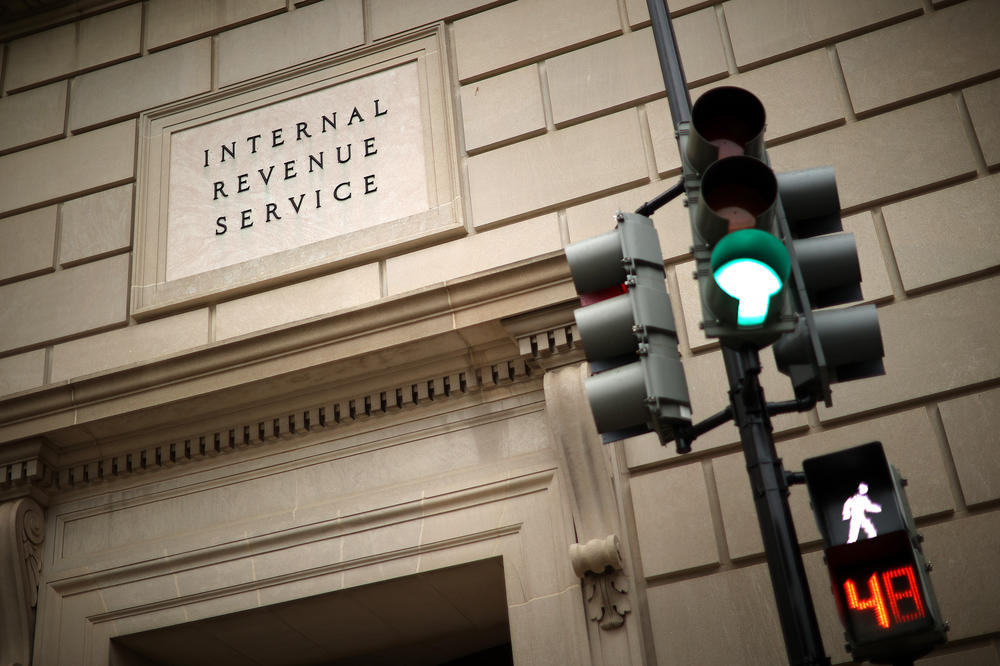Section Branding
Header Content
He's trying to fix the IRS and has $80 billion to play with. This is his plan
Primary Content
There are two competing trends: The population of the U.S. has grown at the same time as the workforce of the IRS has shrunk. Meet the man tasked with a 10-year, $80 billion plan to tackle the agency's troubles.
Who is he? The recently-appointed commissioner of the Internal Revenue Service, Danny Werfel.
- Werfel took the job in March, becoming the 50th commissioner in the agency's history.
- Here are some some quick figures to get your head around what he is dealing with: The IRS has about 85,000 employees, an annual budget of $12 billion, and collects about $4.1 trillion in tax each year, which represents about 96% of the total gross receipts of the U.S.
What's the big deal? To be blunt, the IRS is struggling on a number of fronts — in ways that can directly impact you.
- The population of the U.S. has grown by about 7% over the last decade. Meanwhile, the workforce of the IRS shrunk between 2010 and 2022 by nearly 20%.
- The U.S. government is investing $80 billion in the agency so it can hire more workers and better collect the taxes it is owed — but not paid — by big business and rich people skirting tax laws. (Side note: Republicans aren't happy with this and have tried unsuccessfully to block the spending)
- The IRS is also facing scrutiny over who it chooses to audit. A study released earlier this year found Black Americans are three times more likely to be audited. At the same time, it's also much easier to audit less wealthy people than billionaires with complex arrangements and lawyers on call.
- NPR's Scott Horsley also reports that last year 9 out of 10 phone calls to the IRS went unanswered. This year, though, the agency has hired 5,000 more people to help staff the phone lines and hold times have been cut from an average of 27 minutes last year to just four minutes this year.
- The IRS also plans to invest a big chunk of that $80 billion into its outdated tech, which was the subject of a harsh assessment from the Government Accountability Office earlier this year (it even dropped the word "archaic" at one point).
Want more finance journalism? Listen to the Consider This episode on the rise and fall of a notorious financial investor.
What is Werfel's plan?
On cracking down on people not paying taxes (and ensuring this is done equitably):
Where we have lost capacity over the years is in our ability to assess high wealth, high income filers.
There are roughly 390,000 of these wealthy and very wealthy filers. And right now the IRS has about 2,600 people to assess. Also really important, is these 390,000 filers, their filings are very voluminous ... and they're very complicated.
We have to increase our capacity to deal with that. And that involves hiring — and not just auditors, but economists and engineers and data scientists to really figure out and assess for the American people what these wealthy filers owe versus what they're paying, and make sure that we're closing that gap.
[And] I'm offering the strongest assurance I can that the audit rates that are in place for people earning under $400,000 a year in small businesses, those audit rates are not going up.
On beefing up the workforce and improving customer service:
We need to meet taxpayers where they are.
Some want to walk into a walk-in center and talk to us in person. And so we have the ability now to reopen walk-in centers that were closed due to underfunding, and fully staff them and offer Saturday hours ... People want the IRS website to work more effectively. And so we can make investments so that [the] web platform is as modern and as good and as functional as your local bank or your favorite airline.
So, with funds, we can start to build out a world class customer service set of solutions that taxpayers deserve.
So, what now?
- While Werfel and the IRS implement the plan, they face ongoing pushback from House Republicans, who claim the agency has targeted conservative groups in the past and will go after middle class Americans — assertions the IRS and Treasury Secretary Janet Yellen deny.
- Werfel said building trust was essential to the IRS and it was on a "continuous journey" to improve its service. "We're in a really good place right now, in terms of getting the funding that we need to build our capacity and where our focus should be on serving taxpayers."
Learn more:
- Does the IRS audit some people more often than others?
- The IRS misses billions in uncollected tax each year. Here's why
- WTF does race have to do with taxes?
Copyright 2023 NPR. To see more, visit https://www.npr.org.



